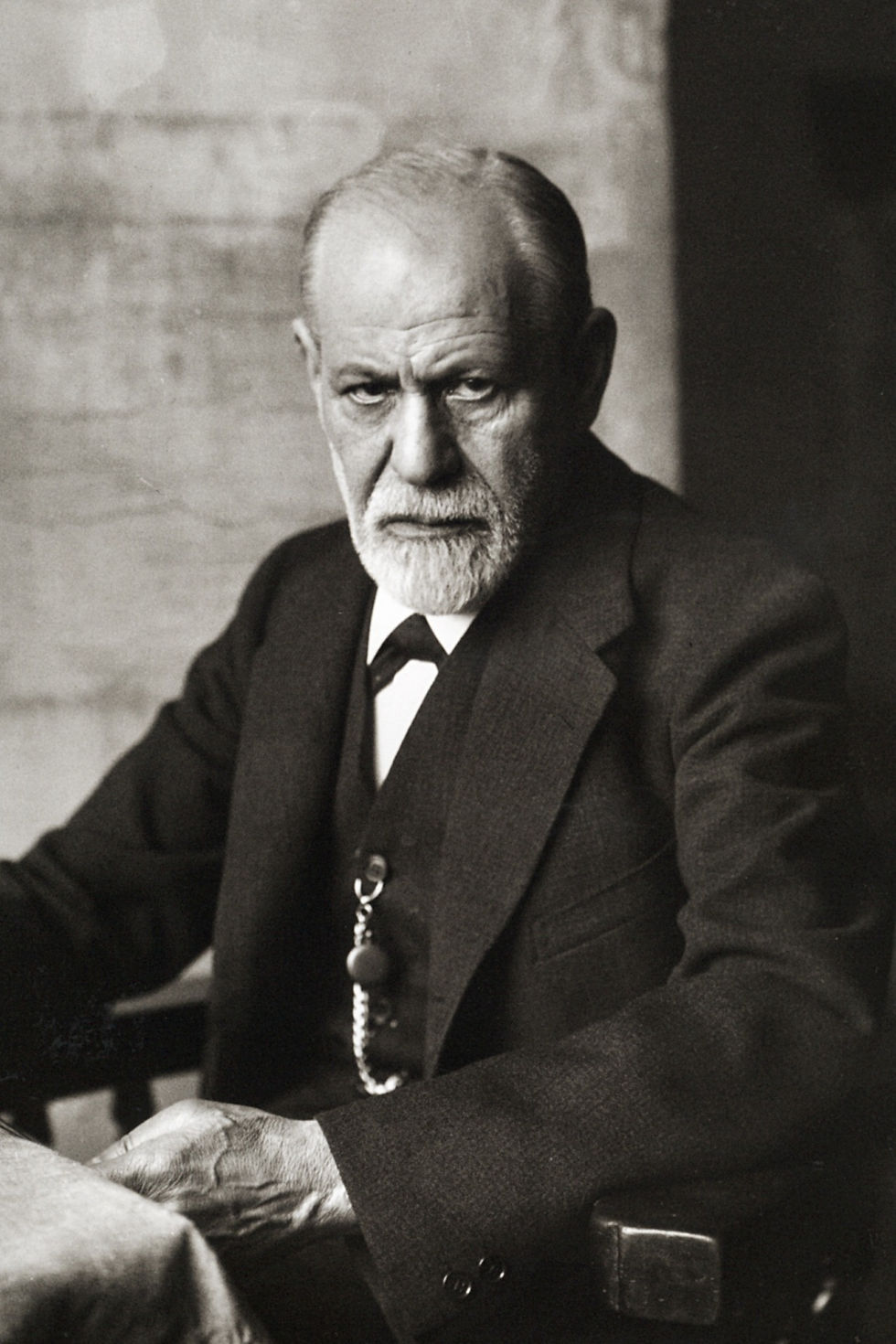The Progression of Psychology in History
- Joanne Lee
- Jan 29, 2023
- 5 min read
By: Celine Chin

Whether or not psychology is truly a branch of science was previously the subject of debate, since many of psychology’s ideas stem from philosophy, which is dependent on observation and educated guessing. In contrast to traditional sciences that aim to find definitive answers to scientific questions, psychology research often comes up with answers that lead to even more questions. However, now it is more accepted as a science, and more specifically, a social science, due to the fact that measured observations and experimentation are used to conduct research in psychology.
It was during the mid-1800s that Wilhelm Wundt, a physiologist from Germany, started introducing psychology as a science by exploring reaction times through the scientific method. Wundt published a book called “Principles of Physiological Psychology,” which tied ideas around human thought and behavior to physiology. He created the first psychology lab in the world at the University of Leipzig, which marked the start of psychology becoming an established scientific field.
Eventually, structuralism, the first school of psychology, was invented by one of Wundt’s students, Edward B. Titchener. The main focus of structuralism was to find the mind’s structure, as structuralists believed that the consciousness could be broken into smaller components. They used the method of introspection, where subjects would report on the sensations and perceptions they experienced to come up with a model of the mind’s structure. However, structuralism eventually died down as this method was unreliable due to the subjectiveness of introspection.
The next school of thought in psychology to emerge was William James’ functionalism. The purpose of functionalism was to determine the function of human thoughts, feelings, and behaviors in a person’s environment. For example, functionalists would study how behaviors would have helped our ancestors survive. William James also wrote a famous textbook called “The Principles of Psychology,” which earned him the title as the father of psychology.

It became clear that consciousness and human experience was very important in psychology. Psychoanalysis is a major perspective that contributed to psychology as well, as this school of thought introduced the idea that childhood experiences and the unconscious mind also played a role in the way people behave as well as how their personalities develop. The idea of psychoanalysis was created by Sigmund Freud, who believed that unconscious thoughts and impulses are often revealed through dreams and slips of the tongue. He also believed that mental disorders were due to these unconscious conflicts being too extreme. Many people nowadays are skeptical of his ideas, but his thoughts and ideas still have a great impact on the field of psychology today.

Another school of thought is behaviorism, which primarily studies observable behavior. Behaviorism started with Ivan Pavlov, who studied how dogs can be classically conditioned and that behaviors can be learned through conditioned associations between environmental stimuli and stimuli that naturally happens. John B. Watson is another notable person to mention when discussing behaviorism, as he wrote the basic principles surrounding it and offered the definition of behaviorism. B.F. Skinner also helped further develop behaviorism by developing the idea of operant conditioning, which surrounds the effects punishments and reinforcements have on behavior. Theories from behaviorism are now used today in techniques like token economies to help kids learn new things and get rid of counterproductive behaviors, and can also be used in situations such as education and in the workforce.

Humanistic psychology is another school of thought that focuses on mental and conscious experiences. Main contributors to this school include Carl Rogers, who believed in free will and self-determination, and Abraham Maslow, who created the hierarchy of needs, which theorizes about human motivation. This hierarchy describes the basic needs that need to be fulfilled before we become more motivated to pursue more complex needs such as self-actualization, which is the state of being able to reach one’s full potential.
Next comes cognitive psychology, which was developed in the 1950s and 60s. This approach gradually became more of a dominant force than psychoanalysis and behaviorism as psychologists started to also question what was truly going on inside our brains. Ideas such as perception, memory, problem-solving, intelligence, and language are being studied, with imaging equipment like MRI and PET scans allowing psychologists to look closer into the brain.
You may have noticed that throughout all of these schools of thought, it was mostly the ideas of men that have been mentioned in each. However, this isn’t because women haven’t made significant contributions in psychology, but rather that they were excluded when it came to practicing psychology and being trained. In fact, there have been quite a few women psychologists, such as Mary Whiton Calkins, who was denied her PhD from Harvard due to her gender, but was able to overcome hardship and became the first female president of the American Psychological Association. Anna Freud, the youngest child of Sigmund Freud, identified many defense mechanisms and founded child psychoanalysis. Another notable figure is Mary Ainsworth, who studied child development and the attachments between children and their caregivers from the “Strange Situation” assessment.
Overall, psychology has come a long way from where it first began with its roots in philosophy, to now being a science that is able to include measurement and experimentation. It is a science that continuously leads to more and more questions, but still allows us to gain a deeper understanding of how the human mind works within its environment, in addition to helping us to better empathize and connect with others.
Questions
Q: Why was it debatable whether psychology is a science?
A: Psychology has roots in philosophy, which is concerned with logic and reasoning; it is also a science that leads to more questions, rather than concrete answers to questions about the mind. However, because the ideas around the human mind, consciousness, and behavior can be measured and studied using the scientific method, psychology can be considered a science.
Q: Who are some women who have contributed to psychology?
A: Back in the day, many women were excluded in the field of psychology due to their gender despite making meaningful contributions in this science. For example, Mary Whiton Calkins was supposed to receive her doctorate at Harvard, but was refused because she was female. However, she ended up becoming the first female president of the APA. Anna Freud, one of Sigmund Freud’s children, also contributed to psychology by studying human defense mechanisms and founding child psychoanalysis. Another woman who has helped further the study of psychology is Mary Ainsworth, who focused on the attachments between children and their caregivers from a test she created called the “Strange Situation.”
Sources
Websites:
Images:
Wikimedia Commons @ Wellcome Library, London
Wikimedia Commons @ Wellcome Library, London
Wikimedia Commons @ J. Finkelstein




Comments